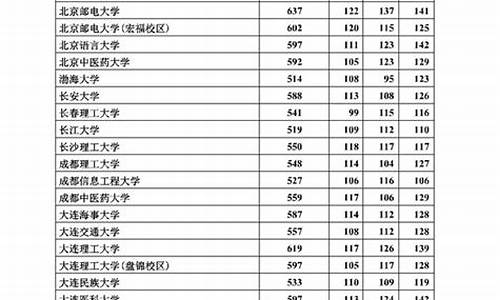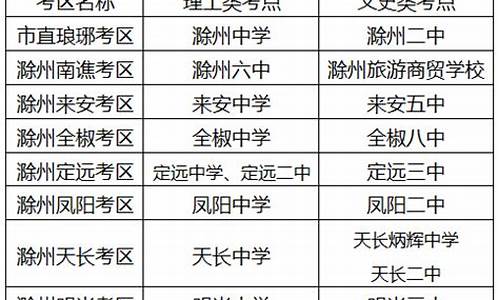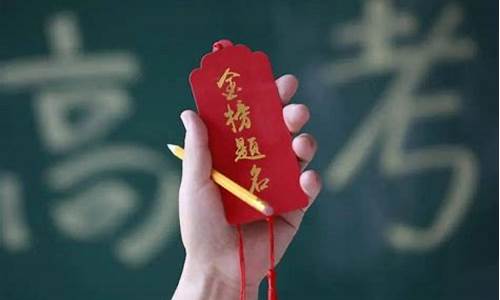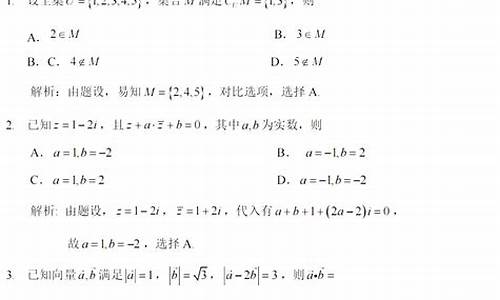您现在的位置是: 首页 > 教育趋势 教育趋势
高考代词知识点的归纳总结_代词用法高考
tamoadmin 2024-07-12 人已围观
简介1.2017年高考英语备考:关系代词副词的区别2.定语从句that和which、who(whom)用法3.高考英语语法:高中英语语法-用主格代词还是用宾格代词4.在定语从句中,什么时候用关系代词,什么时候用关系副词,什么情况下用“介词+关系代词”,要高考了,5.高考英语语法:高中英语语法-定语从句6.高考英语题 代词类高考文言虚词18 一、而 二、何 三、乎 四、乃 五、其 六、且 七、若 八、所
1.2017年高考英语备考:关系代词副词的区别
2.定语从句that和which、who(whom)用法
3.高考英语语法:高中英语语法-用主格代词还是用宾格代词
4.在定语从句中,什么时候用关系代词,什么时候用关系副词,什么情况下用“介词+关系代词”,要高考了,
5.高考英语语法:高中英语语法-定语从句
6.高考英语题 代词类

高考文言虚词18
一、而 二、何 三、乎 四、乃 五、其 六、且
七、若 八、所 九、为 十、焉 十一、也 十二、以
十三、因 十四、于 十五、与 十六、则 十七、者 十八、之
一、而
1、连词:可连结词、短语和分句,表示多种关系。
(1)、表并列关系。一般不译,有时译作 “和”或“及”或“又”。如:
闻善而不善,皆以告其上。(《墨子?尚同》)
以管仲之圣而隰朋之智,至其所不知,不难师于老马与蚁。(《韩非子?说林》)
剑阁峥嵘而崔嵬。(《蜀道难》) 蟹六跪而二螯。(《劝学》)
臣诚恐见欺于王而负赵。(《廉颇蔺相如列传》)
(2)、表递进关系。可译为“并且”或“而且”。如:
夫赵强而燕弱,而君幸于赵王。(《廉颇蔺相如列传》) 君子博学而日参省乎己。(《劝学》)
(3)、表承接关系。一般不译,有时译作 “就”“才”“接着”。如:
人非生而知之者,孰能无惑(《师说》) 余方心动欲还,而大声发于水上。(《石钟山记》)
(4)表转折关系。可译作“但是”“却”。如:
信而见疑,忠而被谤。(《屈原列传》)青,取之于蓝,而青于蓝。(《劝学》)
有如此之势,而为秦人积威之所劫(《六国论》)
(5)表假设关系,可译作“如果”、“假如”。如:
死而有知,其几何离?(《祭十二郎文》) 诸君而有意,瞻予马首可也。(《冯婉贞》)
子产而死,谁其嗣之?(《左传?襄公三十年》)
(6)表修饰关系,连接状语和中心词,可不译,有时译作“地”。如:
吾恂恂而起。(《捕蛇者说》) 吾尝终日而思矣。(《劝学》)
(7)表示因果关系,译作“因而”“所以”如:
表恶其能而不用也。(《赤壁之战》余亦悔其随之而不得极夫游之乐也。(《游褒禅山记》)
(8)表示目的关系,一般译作“来”,或不译。如:
缦立远视,而望幸焉(《阿房宫赋》) 籍吏民,封府库,而待将军(《鸿门宴》)
(9)为下文提出更甚的事情作衬托,译作“还” “尚且”常与“何况”“而况”相呼应,表递进。如:
夫一麑而不忍,又何况于人乎?(《淮南子?人间》)
夫禽兽之愚,而不可妄致也,而况于火食之民乎?(尸子《明堂》)
2、代词:只用作第二人称,通“尔”,一般作定语,译作“你的”,也可作主语,译作“你”。如: ①而翁归,自与汝复算耳。(《促织》)②若欲死而父, 即前斗。《书博鸡者事》③而母立于兹。(《项脊轩志》)④余知而无罪也。(《左传?昭公二十年》)
3、通“如”:好像,如同。如:军惊而坏都舍。(《察今》)
[而已]罢了。复音虚词,表示“限止”,语气助词。例:闻道有先后,术业有专攻,如是而已。(《师说》) 一人、一桌、一椅、一扇、一抚 尺而已。(《口技》)
[而后]才,方才。例:①三月而后成。②臣鞠躬尽瘁,死而后已。(《出师表》)
[而况]即“何况”,用反问的语气表示更进一层的意思。例:①今以钟磬置水中,虽大风浪不能鸣也。而况石乎!(《石钟山记》)②技经肯綮之未尝,而况大軱乎!(《庖丁解牛》)
二、何
1、疑问代词
(1)单独用作谓语,问原因,后面带有语气助词 “哉”“也”。译作“为什么”
“什么原因”。如: 何者?严大国之威以修敬也。(《廉颇蔺相如列传》)
予尝求古仁人之心,或异二者之为,何哉?(《岳阳楼记》)
(2)用作前置的宾语,问处所或事物,译作“哪里”“什么”,译时“何”要后置。如:
豫州今欲何至?(《赤壁之战》) 大王来何操?(《鸿门宴》)
(3)用作定语。译作“什么”“哪”。如:
然则何时而乐耶? (《岳阳楼记》) 其间旦暮闻何物?(《琵琶行》)
(4)用作状语,常表示反问。译作“为什么”“怎么”。如:
何不按兵束甲,北面而事之?(《赤壁之战》)徐公何能及君也?(《邹忌讽齐王纳谏》)
2、副词:表程度,常用在形容词前。译作“怎么”“多么”“怎么这样”。如:
秦王扫六合,虎视何雄哉!(李白《古风十九首?其三》)
至于誓天断发,泣下沾襟,何其衰也!(《伶官传序》) 吏呼一何怒,妇啼一何苦?(《石壕吏》)
3、构成复音虚词“何如”“何以”。
(1)“何如”即“如何”,常用于疑问句中,表疑问。译作“怎么样”“什么样”。如:
今日之事何如?(《鸿门宴》) 其辱人贱行,视五人之死,轻重固何如哉(《五人墓碑记》)
(2)“何以”即“以何”,常用于疑问句中作状语。译作“拿什么”“凭什么”。如:
何以哉?(《曹刿论战》) 吾王庶几无疾病与,何以能鼓乐也(《庄暴见孟子》)
(3)“奈何”,常用于疑问句中作谓语或状语。译作“怎么办”“为什么”。如:
沛公大惊,曰:"为之奈何?"(《鸿门宴》) 奈何取之尽锱铢,用之如泥沙(《阿房宫赋》)
三、乎
1、语气助词
(1)表疑问语气。译作“吗”“呢”。如:
儿寒乎?欲食乎?(《项脊轩志》) 欲安所归乎?(《赤壁之战》)
(2)表反问语气。相当于“呢”。如:
吾师道也,夫庸知其年之先后生于吾乎?(《师说》)
然豫州新败之后,安能抗此难乎?(《赤壁之战》)
(3)表猜度语气。译作“吧”。如:
王之好乐甚,则齐其庶几乎?(《庄暴见孟子》)
师劳力竭,远主备之,无乃不可乎?(《崤之战》)
(4)表感叹语气。译作“啊”“呀”。如:
呜呼!孰知赋敛之毒有甚是蛇者乎!(《捕蛇者说》)
美哉乎,山河之固!(《史记?吴起列传》)
2、介词:用法相当于“于”。如:
醉翁之意不在酒,在乎山水之间也。(《醉翁亭记》)
吾又何怨乎今之人。(《九章?涉江》) 生乎吾前……(《师说》)
3、作形容词词尾。如:
恢恢乎其于游刃必有余地矣!(《庖丁解牛》)
四、乃
1、副词
(1)表示前后两事在情理上的顺承或时间上的紧接。可译作“就”“这才”“于是”等。如:
刿曰:“肉食者鄙,未能远谋”。乃入见。(《曹刿论战》)
悉使羸兵负草填之,骑乃得过。(《赤壁之战》) 度我至军中,公乃入。(《鸿门宴》)
(2)表示前后两事在情理上是逆转相背的。译作“却”“竟然”“反而”等。如:
而君幸于赵王……今君乃亡赵走燕。(《廉颇蔺相如列传》) 而陋者乃以斧斤考击而求之。(《石钟山记》) 问今是何世,乃不知有汉,无论魏晋。(《桃花源记》) 今其智乃反不能及。(《师说》)
(3)表示对事物范围的一种限制。译作“才”“仅”等。如:
臣乃敢上璧。(《廉颇蔺相如列传》)
项王乃复引兵而东,至东城,乃有二十八骑。(《项羽本纪》)
(4)用在判断句中,起确认作用。译作“是”“就是”。如:
若事之不济,此乃天也。(《赤壁之战》) 嬴乃夷门抱关者也。(《信陵君窃符救赵》)
2、人称代词:第二人称,作定语或主语,译作“你的”“你”,不作宾语。如:
王师北定中原日,家祭无忘告乃翁。(陆游《示儿》)
今欲发之,乃肯从我乎?(《汉书?翟义传》)(发:发兵)
五、其
1、人称代词
(1)作第三人称代词。可代人、代事物,作领属性定语。译作“他(们)的”“它(们)的”。
如:臣从其计,大王亦幸赦臣,(《廉颇蔺相如列传》)
工欲善其事,必先利其器。(《论语?卫灵公》)
(2)作第三人称代词。一般代人,作主谓短语中的小主语。译作“他”。如:
秦王恐其破璧。(《廉颇蔺相如列传》)(“其破璧”主谓短语作宾语)
其闻道也固先乎吾。(《师说》)(“其闻道”主谓短语作主语)
(3)活用为第一人称或第二人称。译为“我的”“我(自己)”或者“你的”“你”。如:
今肃迎操,操当以肃还付乡党,品其名位,犹不失下曹从事。(《赤壁之战》)
而余亦悔其随之而不得极夫游之乐也。(《游褒禅山记》)
老臣以媪为长安君计短也,故以为其爱不若燕后(《触龙说赵太后》)
(4)指示代词。表远指,作定语。译作“那”“那个”“那些”“那里”。如:
则或咎其欲出者。(《游褒禅山记》)今操得荆州,奄有其地。(《赤壁之战》)
(5)指示代词。译作“其中的”,后面多是数词。如:
于乱石间择其一二扣之。(《石钟山记》) 其一人专心致志。(《弈秋》)
2、副词:放在句首或句中,常和句末的语气助词配合,表语气。相应译作“大概”
“难道”“还是”“可要”等,或省去。如:
其皆出于此乎?(《师说》)(表猜度,译作“大概”)
其孰能讥之乎?(《游褒禅山记》)(表反问,译作“难道”)
攻之不克,围之不继,吾其还也。(《烛之武退秦师》)(表祈使,译作“还是”)
尔其无忘乃父之志!(《伶官传序》)(表期望,可省去不译)
3、连词
(1)表选择,两个“其”连用。译作“是……还是……”。如:
其然乎,其不然乎?(韩愈《祭十二郎文》) 其真邪,其真不知马也?(《马说》)
(2)表假设,译作“如果”。如:
沛然下雨,则苗浡然兴之矣。其若是,孰能御之?(《孟子见梁襄王》) 其业有不精,德有不成者,非天质之卑,则心不若余之专耳,岂他人之故哉?(《送东阳马生序》)
4、助词,起调节音节的作用,可不译。如:
路曼曼其修远兮,吾将上下而求索(《离骚》)
佩缤纷其繁饰兮,芳菲菲其弥章(《离骚》)
六、且
1、连词
(1)表递进关系。译作“而且”“尚且”“再说”,如:
且焉置土石?(《愚公移山》 且庸人尚羞之,况于将相乎?(《廉颇蔺相如列传》)
臣死且不避,卮酒安足辞!(《鸿门宴》)且将军大势可以拒操者,长江也。(《赤壁之战》)
(2)表并列关系。一般连接两个动词或形容词。译作“一边”“又”,如:
河水清且涟漪。(《伐檀》) 凡四方之士无有不过而拜且泣者。(《五人墓碑记》)
先生仓卒以手搏之,且搏且却。(《中山狼传》)
2、副词
(1)表动作或情况就要发生。译作“将”“将要”。如:
不出,火且尽。(《游褒禅山记》)若属皆且为所虏(《鸿门宴》)
(2)表接近某个时间或数字。译成“快要”“将近”。如:
北山愚公者,年且九十。(《愚公移山》) 率其党且万人降匈奴。(《汉书?匈奴传》)
(3)表短暂时间。译作“暂且”“姑且”。如:
存者且偷生,死者长已矣。(《石壕吏》)誓不相隔卿,且暂还家去。(《孔雀东南飞》)
七、若
1、代词
(1)、作第二人称。做主语或定语。译作“你”“你的”。如:
若入前为寿 ,寿毕 ,请以剑舞(《鸿门宴》)
若毒之乎?(《捕蛇者说》) 更若役,复若赋。(《捕蛇者说》)
(2)、表近指。相当于“这”“这样”“如此”如:
南宫适出,子曰“君子哉若人!”(《论语?宪问》)
2、连词
(1)、表假设。译作“如果”“假如”。如:
若能以吴、越之众与中国抗衡……(《赤壁之战》) 若事之不济,此乃天也。(《赤壁之战》)
(2)、表选择:可译作“或”“或者”。如:
以万人若一军降者,皆万户。(《汉书?高帝记》) 时有军役若水旱……(《汉书?食货志》)
3、动词,像,好像。如:视之,形若土狗,梅花翅,方首,长胫,意似良(《促织》)
吾不忍其觳觫,若无罪而就死地(《齐桓晋文之事》)其若是,孰能御之。(《孟子见梁襄王》)
八、所
1、助词:放在动词前,同动词结合,组成“所”字结构;“所”字结构是名词性短语,表示“所……的人”“所……的事物”“所……的情况”等。如:
会征促织,成不敢敛户口,而又无所赔偿(《促织》) 道之所存,师之所存也。(《师说》)
过蒙拔擢,宠命优渥,岂敢盘桓,有所希冀(《陈情表》) 臣所过屠者朱亥(《信陵君窃符救赵》)
2、“为”和“所”呼应,组成"为……所……"的格式,表示被动。如:
嬴闻如姬父为人所杀。(《信陵君窃符救赵》)
仆以口语遇遭此祸,重为乡党所笑,以污辱先人(《报任安书》)
⒊“所以”连用
⑴、表原因,译作“……的原因”。如:
亲贤臣,远小人,此先汉所以兴隆也;亲小人,远贤臣,此后汉所以倾颓也。(《出师表》)
吾所以为此者,以先国家之急而后私仇也。(《廉颇蔺相如列传》)
⑵、表根据、依靠或凭借,译作“……的根据”“……的方法“靠他来”“用来”等。如:
先王之所以为法者,何也?(《察今》) 吾知所以拒之矣,吾不言。(《公输》)
师者,所以传道授业解惑也。(《师说》)
4、名词: 表处所,地方。如:
又间令吴广之次所旁丛祠中。(《陈涉世家》)成反复自念,得无教我猎虫所耶?(《促织》)某所,而母立于兹。(《项脊轩志》)
九、为
1、介词:表被动时读二声,其它读四声。
(1)表对象。译作“向”“对”等。如:
此中人语云:“不足为外人道也。”(《桃花源记》)
媪之送燕后也,持其踵为之涕。(《触龙说赵太后》)
(2)表替给。译作“替”“给”等。如:
当横行天下,为汉家除残去秽……(《赤壁之战》)
会其怒,不敢献,公为我献之。(《鸿门宴》)
(3)表时间。译作“当……的时候”如:
为其来也,臣请缚一人过王而行。(《晏子使楚》)
为其贫也,使之有屋庐而多禄廪。(王安石《上执政书》)
(4)表目的。译作“为着”“为了”。如:
天下熙熙,皆为利来;天下攘攘,皆为利往。(《史记?货殖列传》)
向为身死而不受,今为宫室之美而为之。(《孟子?告子上》)
(5)表原因。译作“因为”“由于”。如:
天不为人之恶寒也辍冬,地不为人之恶辽远也辍广。(《天论》)
吾见其难为,怵然为戒,视为止,行为迟。(《庖丁解牛》)
(6)表被动。译作“被”,“为”引进的是动作行为的施动者,有时也可不出现施动者,有时跟“所”结合,构成“为所”或“为……所”被动式 。如:
身死国灭,为天下笑,(《过秦论》) 贤能为之用。(《隆中对》)
身客死于秦,为天下笑。(《屈原列传》)不者,若属皆且为所虏!(《鸿门宴》)
今不速往,恐为操所先。(《赤壁之战》)
2、助词:读二声,放在疑问句末,表反问,译作“呢”。如:
如今人方为刀俎……何辞为?(《鸿门宴》) 是社稷之臣也。何以伐为?(《季氏将伐颛臾》) 何故怀瑾握瑜而自令见放为?(《屈原列传》)
十、焉
1、语气助词:用在句末,表陈述或反问语气,用在句中,表提顿,相当于“也”。一般译作“嘛”“呢”“呀”等。也可不译。如:
至丹以荆卿为计,始速祸焉。(《六国论》)一羽之不举,为不用力焉。(《齐桓晋文之事》)
则牛羊何择焉?(《齐桓晋文之事》 万钟于我何加焉?(《鱼我所欲也》)
于是焉河伯欣然自喜。(《庄子?秋水》)句读之不知,惑之不解,或师焉,或否焉。(《师说》)
2、代词
(1)相当于“之”,作宾语。如:
惟俟夫观人风者得焉。(《捕蛇者说》) 犹且从师而问焉。(《师说》)皮之不存,毛将焉附?
(2)疑问代词。作状语,译作“怎样”“哪里”等。如:
未知生,焉知死?(《论语》) 割鸡焉用牛刀?(《论语》)
3、兼词。一种兼“于+何”,作状语,译作“在哪里”。一种兼“于+是”或“于+之”,用在句末作补语,译作 “在那里”,如:
且焉置土石?(《愚公移山》) 夫大国,难测也,惧有伏焉。(《曹刿论战》)
三人行,必有我师焉(在其中)(《论语》) 吾舅死于虎,吾夫又死焉。(《礼记?檀弓下》)
集土成山,风雨兴焉。(《劝学》)
4、作词尾。译作“……的样子”。如:
盘盘焉,困困焉……(《阿房宫赋》)于乱石间择其一二扣之,硿硿焉(《石钟山记》)
2017年高考英语备考:关系代词副词的区别
无提示词
冠词:空格处不给提示词,需要根据固定搭配或者是冠词用法来选择合适的冠词。
介词:空格处不给提示词,需要根据固定搭配或者是介词用法来选择合适的介词。
连词:空格处不给提示词,需要根据句子结构判断是并列连词,还是从属连词。从属连词主要考查引导定语从句、状语从句、名词性从句的引导词。
助动词:空格处不给提示词,需要根据句子。
代词:空格处不给提示词,需要根据上下文,判断是用哪个代词。?
有提示词
动词:给出提示词是动词,需要根据句子把动词变成名词,变成非谓语动词,保持不变,变成被动语态,改变时态,同时改变时态和语态,变成形容词等。
形容词:给出提示词是形容词,需要根据句子把形容词变成副词,变成比较级、最高级,变成名词等。
名词:给出提示词是名词,需要根据句子把名词变成复数,变成形容词等。
人称代词:给出提示词是人称代词,需要根据句子,上下文把人称代词变成物主代词。
定语从句that和which、who(whom)用法
一、 关系代词和关系副词的区别
1、关系代词(that, who, whom, whose, which)所代替的先行词是人或物的名词或代词,并在句中充当主语、宾语、定语等成分。
例1. Is he the man who/that wants to see you?(who / that在从句中作主语,指人)
例2. He is the man whom/ that I saw yesterday.(whom / that在从句中作宾语,指人)
例3. They rushed over to help the man whose car had broken down.(whose在句中作定语,指人)
例4. Please pass me the book whose (of which) cover is green.(whose在句中作定语,指物。若指物,它还可以同of which互换)
例5. The package (which / that) you are carrying is about to come unwrapped. 你拿的包快散了。(which / that在句中作carry的宾语,指物)
2、关系副词(when, where, why, that)可代替的先行词是时间、地点或理由的名词,在从句中作状语。关系副词when, where, why的含义相当于"介词+ which"结构,因此常常和"介词+ which"结构交替使用。
例6. Beijing is the place where (in which) I was born.
例7. Is this the reason why (for which) he refused our offer?
例8. His father died the year (that / when / in which) he was born.
例9. He can’t find the place (that / where / in which) he lived forty years ago.
二、 判断用关系代词和关系副词
方法1: 用关系代词,还是关系副词完全取决于从句中的谓语动词。及物动词后面无宾语,就必须要求用关系代词;而不及物动词则要求用关系副词。请改错:
1. This is the mountain village where I visited last year.
2. I will never forget the days when I spent in the countryside.
习惯上总把表地点或时间的名词与关系副词 where, when联系在一起。此两题错在关系词的误用上。句1和句2的where, when都应改为which.。
方法2: 准确判断先行词在定语从句中的成分(主、谓、宾、定、状),根据第一点(区别),也能正确选择出关系代词/关系副词。
例10.This museum is ___ you visited a few days age?
A. where B. that C. on which D. the one
例11. This is the museum ____ the exhibition was held.
A. where B. that C. on which D. the one (答案:例1 D,例2 A)
在例10中,所缺部分为宾语,而where, that, on which都不能起到宾语的作用,只有the one既做了主句的表语,又可做从句的宾语,可以省略关系代词,所以应选D。
而例11中, 主、谓、宾俱全,从句部分为句子的状语表地点,既可用副词where,又因 in the museum词组,可用介词in + which 引导地点状语。而此题中,介词on 用的不对,所以选A。
关系词的选择依据在从句中所做的成分,先行词在从句中做主、定、宾语时,选择关系代词 (who, whom, that, which, whose); 先行词在从句中做状语时,应选择关系副词 ( where 地点状语,when 时间状语,why 原因状语)。
方法3:当先行词是all, everything, anything, nothing,the one, much, few, any, little等,或先行词是形容词级时,或在there be 句型中,或当先行行词既有人又有物时,关系代词用that, 而不用which。
例12. Finally, the thief handed everything that he had stolen to the police.
例13. The soldiers and their guns that we sent to the front were lost.
方法4:在引导非限定性定语从句时,和在介词后不能用that,应用which。
例14.(错) The tree, that (改为which)is four hundred years old, is very famous here.
例15.We depend on the land from which we get our food.
高考英语语法:高中英语语法-用主格代词还是用宾格代词
定语从句that和which、who(whom)用法1
that和which的用法区别:
在定语从句中,关系代词which和 that都可指物,一般情况下,可以互换使用。但在下列情况下值得注意:
A. 只能用that而不能用which的情形
(1) 当先行词为:all, little, few, much, none 及 some-, any-, no-, every- 与 thing 所组成的复合单词时,只能用that。如:
There is nothing that will stop us making progress. 没有事情会阻止我们进步。
(2) 当先行词前面有only, some, any, no, every, little, few, much, all, very等形容词修饰时,只能用that。如:
This is the only problem that we can’t work out. 这是我们不能解决的唯一的一个问题。
(3) 当先行词由形容词的最高级或序数词修饰时,只能用that。如:
This is the most interesting book that I have ever read. 这是我读过的最有趣的书。
(4) 当先行词同时包括人和物时,只能用that。如:
Luxun and his works that we are familiar with are considered great. 人们认为我们所熟识的鲁迅及其作品都很伟大。
(5) 当先行词在定语从句中作表语时,只能用that。如:
This is a book that I have been looking for since last week. 这就是那本自上周以来我一直在寻找的书。
(6) 当主句是以which开头的特殊疑问句时,只能用that。如:
Which is the picture that you drew yesterday? 你昨天画的那张画是哪一张?
B. 只能用which而不能用that的情形
(1) 当非限制性定语从句中的先行词指物时,只能用which。如:
The pencil-case, which I bought last week, is missing. 那个铅笔盒,我上周买的,现在不见了。
(2) 关系代词前面有介词时,只能用which。如:
The tree under which we used to take a rest has been cut down. 我们过去常在下面休息的那棵树已砍掉了。
(3) 先行词为代词that或that所修饰时,只能用which。如:
I don’t take that which is too expensive. 我不要太贵的那一个。
who (whom) 和that的用法区别详解:
在定语从句中,关系代词who (whom) 和that都可指人和物,在一般情况下,可以互换使用,但在下列情况下值得注意:
一、用who (whom) 而不用that的情形
(1) 在非限制性定语从句中的先行词指人时,只能用who (whom)。如:
My sister, who is studying abroad, sent me a beautiful present just before this Christmas. 我姐姐,她在国外学习,就在圣诞节前给我寄来了漂亮的礼物。
(2) 当定语从句对指人的先行词进行隔位修饰时,只能用who (whom)。如:
Do you know the girl in front of the blackboard who is speaking to the students? 你认识黑板前面正在给学生们讲话的那位女孩子吗?
(3) 当先行词为people和those时,只能用who (whom)。如:
Those who want to go there come here please. 那些想去那儿的人请来这边。
(4) 当先行词为one, ones, anyone, everyone, none, all(指人) 时,只能用who (whom)。如:
Anyone who is against us is our enemy. 任何反对我们的人就是我们的敌人。
(5) 先行词指人,而关系代词在从句中作主语时,一般多用who。如:
The man who came here yesterday said he would come again in a few days. 昨天来这儿的那个人说过几天他会再来。
(6) 在there be句型中名词的定语从句多用who (whom)。如:
There are students in our class who / whom you have met. 我们班有些学生你见过。
(7) 当句子中有两个指人的现行词分别带有两个定语从句时,若一个定语从句的引导词为that, 那么,另一个定语从句的引导词必定为who。如:
The boy that you met just now is Li Ming’s brother who just graduated from a university. 刚才你会到的那个男孩是李明的刚从大学毕业的弟弟。
二、用that 而不用who (whom)的情形
(1) 当先行词前面有形容词的最高级或序数词修饰时,引导词只能用that。如:
The tallest player that plays football for our team is from Shandong. 在为我们队踢足球的最高哪个运动员来自山东。
(2) 当先行词前面有only, some, any, no, every, little, few, much, all, very形容词修饰时,引导词只能用that。如:
He is the only student that said “no” to the teacher. 他是唯一的一个对老师说“不”的学生
(3) 当主句是以who开头的特殊疑问句时,引导词只能用that。如:
Who is woman that you talked with just now? 刚才跟你谈话的那位妇女是谁?
(4) the same as与the same that
the same as所引导定语从句的内容与先行词同类而不同物;the same that表示所引导的从句内容与先行词同类同物,即:同一事物。如:
She is wearing the same coat that I lost a few days ago. 她正穿着我几天前所丢失的上衣。(暗含:她偷了我的上衣)
She is wearing the same coat as I lost a few days ago. 她正穿着跟我几天前所丢失的上衣同样的'上衣。(暗含:她所穿的上衣不是我所丢失的那一件)
定语从句that和which、who(whom)用法2that常用作关系代词,可指代某人,也可指代某物,指物时有的时候可用which替换that,指人时可用who替换。但在下列情况下,一般用that。
一、that指代某物事时
1.先行词为all, few, little, much, the one, something, anything, everything, nothing等时。如:
(1)We'll do all that we can to protect the endangered plants and animals.
我们将尽我们的最大努力来保护那些濒危的动植物。
(2) There is much that I wan to tell you.
我有很多想要告诉你的话。
(3) Is there anything that I can do for you?
有什么我可以帮你的吗?
2. 先行词被all, every, no, some, any, (a)few, (a)little, much等限定词修饰时。如:
(4) You can borrow any book that you want to read in our school library.
在我们图书馆,你可以借任何你想读的书。
3. 先行词被序数词或形容词最高级修饰时。如:
(5)This is the most beautiful city that I've ever seen.
这是我见过的最漂亮的城市。
4. 先行词被the only, the very, the right, the last 等修饰时。如:
(6)This is the very factory that they visited last summer holiday.
这恰好是他们去年参观的那个工厂。
(7)This is the only painting in this style that we have.
这种风格的画我们仅有一幅。
5. 先行词是并列结构,既有人又有物时。如:
(8)He talked happily of the writer and his books that interested him.
6. 先行词前有the same 修饰,表示和先行词是同一物时。如:
(9)This is the same purse that I lost yesterday.
这就是我昨天丢的那个钱夹。
注:如果表示的是与先行词同一类或相似的某物,则用the same…as….如:
(10)This is the same purse as I lost yesterday.
这个钱夹和我昨天丢的那个一样。
7. 先行词为数词时。
(11)Look at the books on the bookshelf. You can see the two that you bought me for my birthday.
瞧书架上那些书。你可以看到我过生日时你买的那两本。
8. 如果which引导的定语从句中又含有一个定语从句,为避免重复,第二个定语从句用that。如:
(12)They built a factory which produced things that had never been seen.
他们建了一工厂,生产以前从未见过的东西。
9. 以which作主语开头的特殊问句,为了避免重复,定语从句用that。如。
(13)Which is the bus that you will take?
你要乘的是哪一班车?
10. 关系代词在定语从句中作表语时,而且通常省略。如:
(14)My hometown is no longer the place that it used to be.
我的家乡再也不是以前那个样子了。
11. 关系代词在there be 句型中作主语时,而且常可以省略。如:
(15)This is the fastest train (that) there has ever been.
这是有史以来最快的列车。
二、that 指代某人时。
1. 泛指某人时。如:
(16)He is a man that is never at a loss.
他是一个从未一筹莫展的人。
2. 主句是以作主语的who开头的特殊问句,为了避免重复时。如:
(17)Who is the person that is talking with our headmaster?
和我们校长说话的那人是谁?
3. 先行词前有the same时。如:
(18)This is the same man that gave us a talk last year.
这和去年给我们作报告的是同一人。
4. 关系代词在定语从句中作表语时。如:
(19)He has changed. He was not the man (that) he was 10 years ago.
他变了。他再也不是10年前的他了。
另外,that也可用作关系副词,表示时间、地点、原因和方式,在口语中可以用来代替when, where, why 引导的定语从句。在以下名词day, year, time, moment, reason, place等作先行词时,可用that作关系副词引导定语从句。如:
(20)I'll never forget the day (that) I joined the League.
我永远不会忘记我入团的那一天。
(21)Is this the reason (that) they were late for the meeting?
这就是他们开会迟到的原因吗?
(22)We want to find a place (that) we can have a picnic.
我们想找一个我们能野餐的地方。
(23)This is the first time that I have been abroad for traveling.
这是我第一次到国外去旅游。
(注:先行词是time,前面有序数词或last修饰时,常用that引导定语从句或者省略。)
当先行词为表示方式的词the way时,可用that引导定语从句, that常可以省略。
(24)I don't the way you speak to her.
我不喜欢你和她说话那种方式。
定语从句that和which、who(whom)用法3高考中常常考查one和that作为普通代词的区别,还常与it进行区别.主要用法如下:
I.it/one /that三者均可用作代词,指代前面提到的名词.一般说来,it指代同名同物; one与that则指代同名异物.
I have lost my umbrella; I'm looking for it.(该句中it就是指前面的my umbrella)
I have lost my umbrella; I think I must buy one.(one在该句中表泛指,因为my umbrella已经丢了)
The umbrella you bought is cheaper than that I bought.(替代词that在该句中特指“the umbrella I bought”,以区别“the umbrella you bought”)
II.one与that虽可用来指代同名异物,但one为泛指,相当于a/an+名词; that为特指,相当于the +名词.所以one所指代的名词的修饰语一般为 a/an /some /any; that所指代的名词的修饰语往往是the /this /that.
A chair made of steel is stronger than one made of wood.(该句中one可以换成a chair)
The water in the cup is hotter than that in the pot.(该句中that可以换成 the water)
III.one只能代替可数名词单数,代替可数名词复数时用ones; that既可以代替不可数名词也可以代替可数名词单数,代替可数名词复数时用 those.
I like this pen more than that one.(one代替可数名词单数pen)
There were a few young people and some older ones in the house.(ones代替可数名词复数people)
Mary's handwriting is far better than that of Peter.(that代替不可数名词 handwriting)
These pictures are more beautiful than those.(those代替可数名词复数 pictures)
IV.one既可代替事物,也可代替人,that只能代替事物而不能代替人.有时可以用the one或the ones代替that或those.
The one /That on the table is mine.(该句中The one代替事物,并且也可以用That)
He is the teacher,the one who is loved by the students.(该句中the one代替人,不能用that)
He advised the farmers to choose the best seed-heads,the ones /those that had the best color.(该句中the ones代替事物,并且也可以用those)
V.one一般有前置修饰语,有时也可有后置修饰语或不用修饰语.而 that不能有前置修饰语,但可有后置修饰语.
Cook was a strict but good captain,one who took good care of his sailors.
The water in the well is cleaner than that in the river.
VI.it可以替代句中的不定式或从句等,充当形式主语或形式宾语.one与that均无此用法.
It is known to everybody that the moon travels around the earth once every month.
I found it hard to get on with her.
VII.it与that均可以替代上文全句的内容或部分内容,而one /ones则不可以
在定语从句中,什么时候用关系代词,什么时候用关系副词,什么情况下用“介词+关系代词”,要高考了,
《高中英语语法-用主格代词还是用宾格代词》由留学英语组我整理(www.liuxue86.com)。本内容整理时间为05月12日,如有任何问题请联系我们。
用主格代词还是用宾格代词
主格代词和宾格代词的用法是近几年高考试题考查的热点之一,许多考生因为没有掌握好这方面的知识而常常出错失分。请先看下面这道高考题:
( NMET 2003 )- Susan, go and join your sister cleancing the yard.
- Why ______? John is sitting there doing nothing.
A. him B. he C. I D. me
此题的正确答案是 D .
下面我们探讨一下在什么情况下用主格代词,在什么情况下用宾格代词。
1. 英语口语中习惯上用人称代词的宾格作表语。例如:
It's me. 是我。( It's I. 为正式用法。)
What would you do if you were him?
如果你是他,你怎么办?
I didn't expect the winner to be her.
我没有料到获胜者会是她。
2. 宾格代词常出现在下面这样的感叹句中:
( 1 )- He's got to repay the money.
他必须偿还这笔钱。
- Poor him! 他真倒霉!
( 2 )- She won the match. 她赢得了比赛。
- Lucky her! 她真走运!
3. 如果作主语的人称代词孤立地用于无谓语动词的句子中,常用宾格代词。在省略句中通常用宾格代词。例如:
( 1 )- I like watching TV. 我喜欢看电视。
- Me, too. 我也喜欢。
( 2 )- Who wants a lift to the station?
谁想搭便车去车站?
- Me!
我!
( 3 )- Does anybody want another orange?
谁还要桔子?
- Me! 我要!
4. 作主语的人称代词与 not 或 why 连用时,常用宾格代词。例如:
( 1 )- Someone will have to answer for it.
有人会为此负责。
- Not you or me.
不是你也不是我。
( 2 )- Why me? 为什么是我?
- I was no duty yesterday.
我昨天值班了。
值得注意的是,在上述句式中,通常用第一人称代词的宾格作主语,其它人称的代词较少见。
5. 在 as 和 than 后面也有用主格代词或宾格代词两种可能性。在口语里习惯上用宾格代词,在正式文体中用主格代词。例如:
My younger brother is as tall as me. / My younger brother is as tall as I ( am ) .
我弟弟和我一样高。
He is much stronger than me. / He is much stronger than I ( am ) .
他比我强壮得多。
6. 在强调句中有用主格代词或宾格代词作主语两种可能性。在正式文体中用主格代词,在非正式文体中用宾格代词。例如:
It was me that told the police.
是我告诉警察的。(非正式文体)
It is I who will take charge of the class meeting tomorrow afternoon.
明天下午将由我主持班会。(正式文体)
7. 在非正式文体中,可以用 who 代替 whom 作宾语,但在正式文体中多用 whom 作宾语,而在介词后面只能用 whom 作宾语。例如:
Who are you going with?
你和谁一起去?(非正式文体)
Whom do you decide to send to the countryside?
你们决定派谁去农村?(正式文体)
Who did you shake hands with?
你和谁握手了?(非正式文体)
With whom did you shake hands?
你和谁握手了?(正式文体)
8. ? but / except + 代词?中的代词在句中作主语时,宜用主格代词,在句中作宾语时,宜用宾格代词。例如:
Nobody but she can solve our problems.
除了她没有人能解决我们的问题。
All the students like dancing except him.
除了他以外,所有的学生都喜欢跳舞。 《高中英语语法-用主格代词还是用宾格代词》由留学英语组我整理(www.liuxue86.com)
高考英语语法:高中英语语法-定语从句
什么时候用关系代词:定语从句中,先行词是人或物,而引导词充当从句中的主语、宾语、表语时,用关系代词;
The book that/which was written by him sells well.(先行词是the book,引导词在从句中充当主语)
The book that he wrote sells well..(先行词是the book,引导词在从句中充当宾语)
什么时候用关系副词:定语从句中,先行词是表示时间、地点的词时,而引导词在从句中充当时间、地点状语时,用关系副词;先行词是the reason,定语从句引导词一般为why。在使用关系副词时,从句结构是完整的(也就是不缺少主谓宾)
什么情况下用“介词+关系代词”:这个有点难解释。这样说吧,介词的选择是由两种情况:
1.看先行词决定:
如:I will never forget the day on which I joined the army.
I will never forget the year in which I joined the army.
2.看从句谓语搭配决定:
He had nobody to whom he could turn because it was too late.
This is the house in which I lived two years ago.
高考英语题 代词类
《高中英语语法-定语从句》由英语我整理,更多请访问:。本内容整理时间为05月12日,如有任何问题请联系我们。
定语从句
(一)定语从句一般由关系代词和关系副词引导
1、关系代词:who, whom, whose, which, that, as
2、关系副词:when, where, why
关系代词和关系副词必须位于从句之首,主句先行词之后,起着连接先行词和从句的作用, 同时在从句中又充当句子成分。
e.g. She is the girl who sings best of all.(关系代词who在从句中作主语)
The comrade with whom I came knows French.(whom在从句中作介词with的宾语)
3、关系代词和关系副词的用法:1)当先行词为人时用who 作主语,whom作宾语;2)当先行词为物或整个句子时用which ,可作主语或宾语;3)先行词为人、物时用that ,可作主语或宾语;4)whose用作定语,可指人或物;5)关系副词when(指时间,在定语从句中作时间状语,where(指地点,在定语从句中作地点状语),why(指原因,在定语从句中作原因状语)。
(二)限制性定语从句与非限制性定语从句
1、限制性定语从句:从句与主句关系密切,去掉从句,主句意义不完整,甚至不合逻辑。
e.g. I was the only person in our office who was invited.(去掉定语从句,意思就不完整)
2、非限制性定语从句:从句对先行词关系不密切,去掉定从句,意思仍然完整。形式上用逗号隔开,不能that用引导。
e.g. Tom's father, who is over sixty, still works hard day and night.(who引导非限制性定语从句,整个句子可分成两句来翻译)
(三)使用定语从句时特别注意的几个问题
1、that与which的区别。
1)用that而不用 which的情况:①先行词为不定代词all, anything, nothing, ?;②先行词有最高级修饰,有序数词修饰;③先行词有only, very, any等词修饰;④先行词既有人又有物时。
e.g. There is nothing that can prevent him from doing it. 没有什么能阻止他不干那件事。
The first place that they visited in Guilin was Elephant Trunk Hill. 在桂林他们所参观的第一个地方是象鼻山。
This is the best film that I have ever seen. 这部**是我看过的最好的一部。
Mr Smith is the only foreigner that he knows. 史密斯先生是他认识的唯一的外国人。
2)用which而不用 that的情况:①引导非限制性定语从句;②代表整个主句的意思;③介词 + 关系代词。
e.g. He had failed in the maths exam, which made his father very angry. 他数学考试没有及格,这使他的父亲很生气。
This is the room in which my father lived last year. 这是父亲去年居住过的房子。
3)as引导定语从句时的用法
①as引导限制性定语从句通常用于the same ? as, such ? as结构中。
e.g. I want the same shirt as my friend's. 我要一件跟我朋友一样的衬衫。
Such machines as are used in our workshop are made in China. 我们车间使用的这种机器是中国制造的。
②as引导非限制性定语从句既可放在主句之前,也可放在主句之后,用来修饰整个句子。通常用下列句型:as is known to all, as is said, as is reported, as is announced, as we all know, as I expect 等。
e.g. As I expected, he got the first place again in this mid-term examination. 正如我所预料的那样,他在这次期中考试中又获得了第一名。
3)as 引导非限制性定语从句时与which的区别
①当主句和从句语义一致时,用as;反之,用which来引导非限制性定语从句。
e.g. He made a long speech, as we expected.
He made a long speech, which was unexpected.
②当非限制定语从句为否定时,常用which引导。
e.g. Tom drinks a lot every day, which his wife doesn't like at all.
2. 关系代词在从句中作主语时,从句的谓语动词单数还是用复数应由先行词决定。
e.g. The man who lives downstairs speaks English fluently. 住在楼下的那个人英语说得很流利。
The students who are in Grade Three are going to climb the hill tomorrow.
3. 定语从句有时不直接紧靠先行词,中间由一个定语、状语或谓语隔开。
e.g. There is an expression in his eyes that I can't understand.
4. 引导定语从句的关系副词有时可以用"介词 + which"来代替。
e.g. October 1, 1949 was the day on which ( = when ) the People's Republic of China was founded.
5. 当定语从句中谓语动词是带介词或副词的固定短语动词时,短语动词的各个固定部分不要拆开。
e.g. The sick man whom she is looking after is her father.
6. 介词在关系代词前,只能用which和whom,且不能省略;介词在句尾,关系代词可有which, that, whom, 口语中也可用who,且可省略。
e.g. The man (whom/ who/ that) you were talking about has come to school.
练习、定语从句
一、把下列每对句子合并成含有定语从句的主从复合句:
1. The fan is on the desk. You want it.
2. The man is in the next room. He brought our textbooks here yesterday.
3. The magazine is mine. He has taken it away.
4. The students will not pass the exam . They don't study hard.
5. The woman is our geography teacher. You saw her in the park.
6. The letter is from my sister. I received it yesterday.
7. The play was wonderful. We saw it last night.
8. The train was late. It was going to Nanning.
9. The boy is my brother. He was here a minute ago.
10. The tree is quite tall. He is climbing it.
11. Here is the girl. Her brother works in this shop.
12. That's the child. We were looking at his drawing just now.
13. This is the boy. His sister is a famous singer.
14. I want to talk to the boys. Their homework haven't been handed in.
15. Is that the woman? Her daughter is in my class.
16. He used to live in a big house. In front of it grew many banana trees.
17. They passed a factory. At the back of the factory there were rice fields.
18. The soldier ran to the building. On the top of it flew a flag.
19. In the evening they arrived at a hill. At the foot of the hill there was a temple.
20. She came into a big room. In the middle of it stood a large table.
二、根据句子意思,在第一个空白处填入介词,在第二个填入关系代词whom或which:
1. The person ________ ________ I spoke just now is the manager that I told you about.
2. The pencil ________ ________ he was writing broke.
3. Wu Dong, ________ ________ I went to the concert, enjoyed it very much.
4. The two things ________ ________ Marx was not sure were the grammar and some of the idioms of English.
5. Her bag, ________ ________ she put all her books, has not been found.
6. The stories about the Long March, ________ ________ this is one example, are well written.
三、选择填空:
1. The man ____ visited our school yesterday is from London.
A. who B. which C. whom D. when
2. The woman ____ is talking to my mother is a friend of hers.
A. whose B. who C. whom D. which
3. Because of my poor memory, all ____ you told me has been forgotten.
A. that B. which C. what D. as
4. Do you remember those days ____ we spent along the seashore very happily?
A. when B. where C. which D. who
5. Tom did not take away the camera because it was just the same camera ____ he lost last week.
A. which B. that C. whom D. as
6. Those ____ want to go please sign their names here.
A. whom B. which C. who D. when
7. Where is the man ____ I met this morning?
A. when B. where C. which D. who
8. Who is the woman ____ is sweeping the floor over there?
A. who B. / C. that D. when
9. The man ____ you talked just now is a worker.
A. who B. whom C. to whom D. to who
10. The man ____ you are going to make friends is my father's neighbour.
A. with whom B. when C. to whom D. which
11. The doctor ____ is leaving for Africa next month.
A. the nurse is talking to him B. whom the nurse is talking
C. the nurse is talking to D. who the nurse is talking
12. The man ____ around our school is from America.
A. which you showed B. you showed him C. you showed D. where you showed
13. He talked about a hero ____ no one had ever heard.
A. of whom B. from whom C. about that D. who
14. In fact the Swede did not understand the three questions ____ were asked in French.
A. where B. who C. in which D. which
15. Have you read the book ____ I lent to you?
A. that B. whom C. when D. whose
16. Finally, the thief handed over everything ____ he had stolen to the police.
A. that B. which C. whatever D. all
17. The foreign guests, ____ were officials, were warmly welcomed at the airport.
A. most of them B. most of that C. most of whom D. most of those
18. This is the very letter ____came last night.
A. who B. which C. that D. as
19. I know only a little about this matter; you may ask ____ knows better than I.
A. whoever B. whomever C. anyone D. the one
20. This is the school ____ we visited three days ago.
A. where B. / C. when D. what
21. This is the factory ____ we worked a year ago.
A. where B. that C. which D. on which
22. Nearby were two canoes ____ they had come to the island.
A. which B. in which C. that D. /
23. Jack is pleased with ____ you have given him and all ____ you have told him.
A. that, what B. what, that C. which, what D. that, which
24. Do you work near the building ____ colour is yellow?
A. that B. which C. its D. whose
25. In the dark street, there wasn't a single person ____ she could turn for help.
A. whom B. who C. to whom D. form whom
26. Is this school ____ we visited three years ago?
A. the one B. which C. that D. where
27. Is this the school ____ we visited three years ago?
A. the one B. where C. in which D. /
28, How many students are there in your class ____ homes are in the country?
A. whose B. who C. whom D. which
29. Alice received an invitation from her boss, ____ came as a surprise.
A. it B. which C. that D. he
30. The train was crowded and I had to get into a carriage ____ already seven other people.
A. when there were B. which there were C. that there were D. where there were
31. I live in the house ____ windows face south.
A. which B. whose C. where D. in that
32. ---- What game is popular with them? ---- The ____ most is tennis.
A. game they like it B. game they like C. best game they like D. best game they like it
33. They stayed with me three weeks, ____ they drank all the wine I had.
A. which B. which time C. during which time D. during which
34. The room ____ Mr White lives is not very large.
A. that B. which C. where D. when
35. Don't forget the day ____ you were received into the Youth League.
A. when B. that C. at which D. where
36. I've finished writing the novel, ____ is to be published next month.
A. that B. what C. which D. when
37. He returned home safe and sound after a fierce battle, ____ was unexpected.
A. which B. as C. that D. it
38. ____ we is known to all, English is not very difficult to learn.
A. What B. As C. That D. Which
39. The old man had three sons, all of ____ died during World War Ⅱ.
A. whose B. that C. whom D. who
40. I have bought two pens, ____ write well.
A. none of which B. neither of which C. both of which D. all of which
41. Do you know the reason ____ she has changed her mind?
A. why B. which C. for that D. of which
42. He failed in the exam, ____ proves that he wasn't working hard enough.
A. which B. what C. it D. that
43. During the week ____ he tried to collect materials for his article.
A. following B. followed C. to follow D. that followed
44. ____ was expected, he succeeded in the exam.
A. It B. Which C. As D. That
45. He studied hard and later became a well-known writer, ____ his father expected.
A. that was what B. what was that C. and which was D. which was what
46. We should read such books ____ will make us better and wiser.
A. when B. as C. whose D. what
47. You must show my wife the same respect ____ you show me.
A. when B. as C. whose D. what
48. He is absent ____ is often the case.
A. what B. which C. who D. as
49. It is the first time ____ I have come to your city.
A. that B. which C. what D. when
50. Who ____ has the same idea as it will do it in this way.
A. who B. that C. whom D. which
51. I shall never forget those years ____ I lived in the country with the farmers, ____ has a great effect on my life.
A. that, which B. when, which C. which, that D. when, who
52. This is the only book ____ I can find.
A. that B. which C. it D. with which
53. I don't like ____ you speak to her.
A. the way B. the way in that C. the way which D. the way of which
54. That is one of those books that ____ worth reading.
A. is B. are C. has D. have
55. This is the only one of the students whose handwriting ____ the best.
A. is B. are C. has D. have
56. There was ____ to prevent the accident.
A. something could do B. anything we could do
C. nothing we couldn't do D. nothing we could do 《高中英语语法-定语从句》由英语我整理,更多请访问:中间的应该是because“因为”
意思是,在旅行中,皮特从不喜欢参观大城市,因为他认为城市和城市之间很像。
A ,是两个中的另一个,这里面用的是large CITIES,显然不只两个
C 是一个和同范围内的其他多个,这里应该是一个城市与另一个城市的比较,所以不选C
D 没有冠词,泛指的其他的,用在这里不合适,这里指他所参观的那些大城市,是有范围的
B 是多个中的另一个,所以选择B
下一篇:高考发热考场_如果高考发烧怎么办









